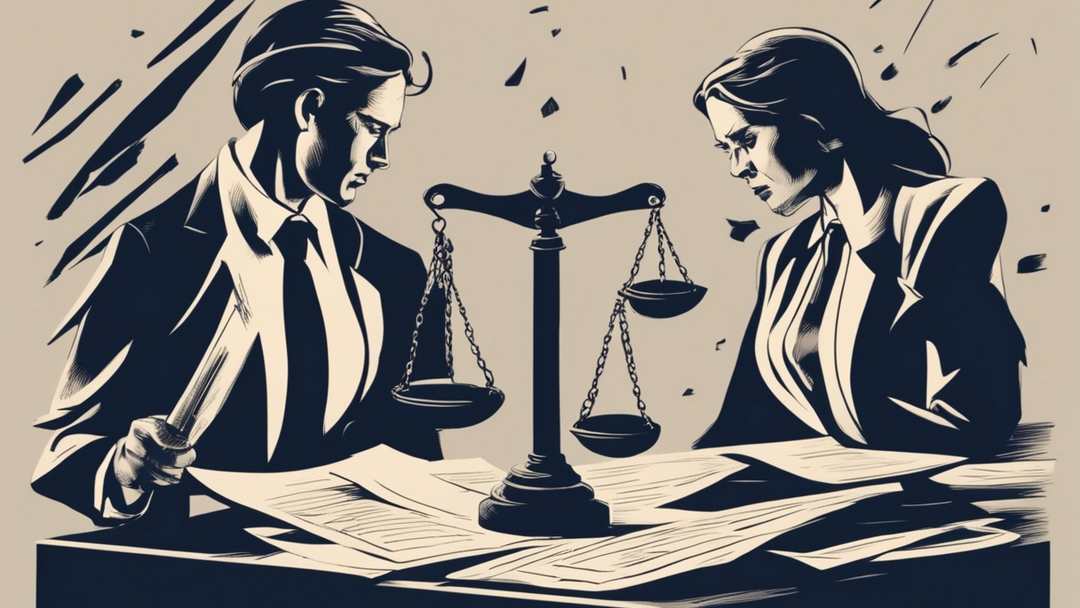What’s the difference between a Magistrate and a Judge in Michigan?
In Michigan’s court system, both magistrates and judges play important roles, but they have different responsibilities and authority. Understanding the differences between the two can help you know what to expect if you find yourself in court.
What Is a Magistrate?
A magistrate is a judicial officer with more limited authority than a judge. They are often appointed by the chief judge of a court and assist judges by handling less serious matters. While they are not elected like judges, magistrates still play a crucial role in the justice system, especially in Michigan’s District Courts.
Magistrates typically handle:
- Traffic violations and small claims cases
- Setting bail and issuing warrants
- Arraignments (the first court appearance where charges are read)
- Conducting preliminary examinations in some criminal cases
- Handling informal hearings and resolving minor disputes
Magistrates are not authorized to preside over trials for more serious criminal offenses or issue final judgments in complex cases. Their role is to help ease the court’s workload by dealing with simpler matters.
What Is a Judge?
A judge is an official who presides over court cases and makes decisions based on the law. Judges handle a wide variety of cases, including criminal, civil, family, and probate matters. In Michigan, judges are either elected by voters or appointed by the governor to serve a specific term, usually six years.
Judges have broad authority and can:
- Oversee trials in both criminal and civil cases
- Make rulings on evidence and legal issues
- Decide the outcome of cases if there is no jury
- Sentence individuals in criminal cases
- Handle appeals in some cases
Judges are often seen in higher courts, such as Circuit Courts or Probate Courts, where they have more power and oversee more serious matters, such as felony cases or significant lawsuits.
In summary, while both magistrates and judges play important roles in Michigan’s court system, judges have more authority and handle more complex cases, while magistrates focus on smaller, less serious legal matters.
Since 1993 Komorn Law has provided expert legal defense for individuals facing criminal charges, DUI cases, and appeals in both Federal and State courts.
Komorn Law’s aggressive defense strategies, ensures that your rights are protected at every stage of the legal process. If you’re looking for a fighting lawyer, call us.
Note: This article provides a general overview and does not substitute for legal advice. Anyone charged with a CSC offense should consult an attorney for specific legal guidance.
Laws
Criminal Sexual Conduct (CSC) – Michigan
Criminal Sexual Conduct (CSC) in Michigan: Definitions, Penalties, and Legal References.Criminal Sexual Conduct (CSC) is a set of laws in Michigan that define and penalize various forms of sexual offenses. These laws are categorized into four degrees, with each degree...
Update on Michigan’s Sick Time Act (Small Business Compliance)
Small Business Compliance Accrual Method: Employees accrue 1 hour of paid sick time forevery 30 hours worked, and unused paid sick time rolls over upto 72 hours, or 40 for a small business. Employers may limit theuse of earned sick time to 72 hours, or 40 for a small...
What Are Your Rights Before And After Arrest?
What are your rights before and after arrest?Generally, police require a search warrant to lawfully enter any private premises or to search electronic devices such as your phone or computer. If the police do not possess a search warrant, you are under no obligation to...
Michigan Probationers Allowed Medical Marijuana
Yea. We did that...What it is supposed to beOn February 11, 2021, the Michigan Court of Appeals ruled that judges cannot prohibit individuals on probation from using medical marijuana if they are registered patients under the Michigan Medical Marihuana Act (MMMA)....
Public Defenders in Michigan – Qualifications and What They Do
Note: This is what they are supposed to do. Whether they give a damn about you and the outcome is up to the individual attorneyWhat it is supposed to beIn Michigan, public defenders play a vital role in the criminal justice system by providing legal representation to...
New Michigan Laws Going Into Effect 2025
Making laws as fast as possible. Look over here...Not over there.Some of Michigan's new laws in 2025 include minimum wage increases, paid sick time, and automatic voter registration. Minimum wage The minimum wage in Michigan increased to $10.56 per hour on January 1,...
Whitmer’s $3B plan to fix Michigan’s roads calls for more taxes
Same Thing - Different DayWhitmer's $3B plan to fix Michigan roads calls for more corporate, marijuana taxes, taxes at the pump and you can just imagine the ones you don't know about.Michigan Governor Gretchen Whitmer has introduced a comprehensive three billion...
Qualifying for a Public Defender in Michigan
In Michigan, individuals charged with a crime have the constitutional right to legal representation.In Michigan, individuals charged with a crime have the constitutional right to legal representation. For those unable to afford a private attorney, the state provides...
Terry Stop and Refusal to Identify Yourself to Police
Because this is how it always goes...This is the second part of this post. Read this first - Just Because You're Hanging Out in a High Crime Area Doesn't Make You Suspicious.Standard for Investigatory Detentions / Terry Stops Under Terry v Ohio and other well...
Just Because You’re Hanging Out in a High Crime Area Doesn’t Make You Suspicious
Mere presence in a “high crime” area does not provide particularized suspicion of criminal activity for an investigatory detention.People vs Prude In People v Prude, Prude was in a parked vehicle at an apartment complex that was regularly patrolled by police because...
















